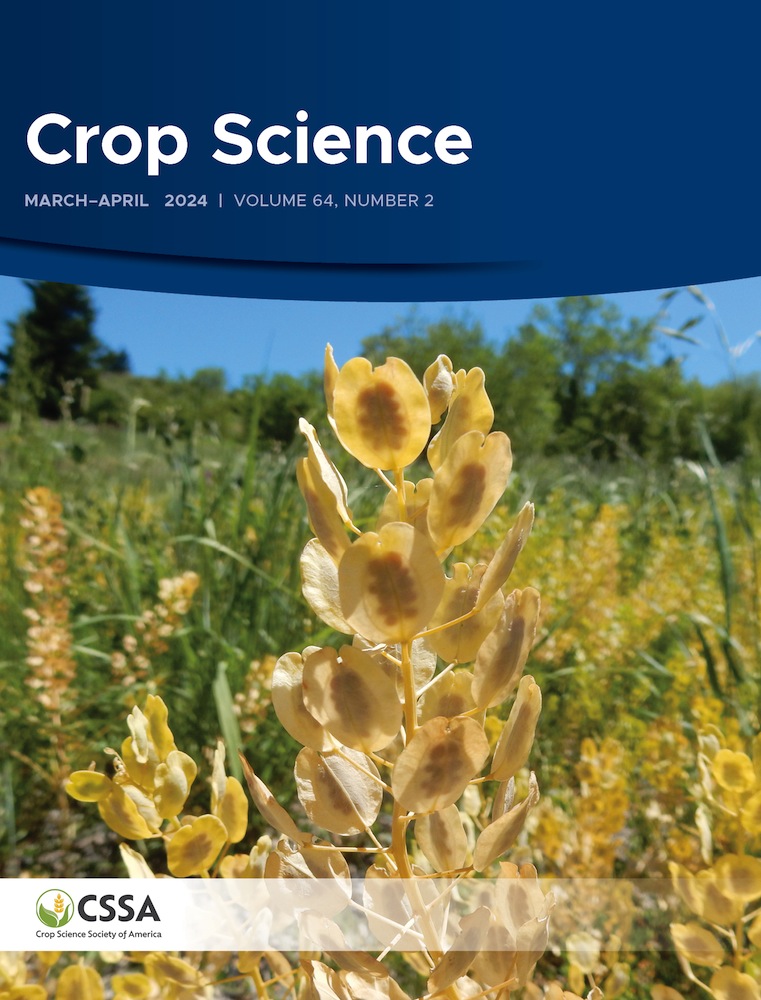Ph.D. in Crop Science: Introduction, Admission, Registration, Eligibility, Duration, Fees, Syllabus 2024

Introduction:
A Ph.D. in Crop Science is an advanced research degree that delves deep into the science of crop production, breeding, genetics, and management. This comprehensive guide provides insights into the admission process, eligibility criteria, completion time, career prospects, syllabus overview, internship opportunities, scholarships, and FAQs relevant to prospective scholars in this field.
Admission Process:
- Research Programs: Explore universities offering Ph.D. programs in Crop Science, considering faculty expertise, research facilities, and program focus areas.
- Application Submission: Complete online applications, including transcripts, GRE scores (if required), recommendation letters, statement of purpose, and research proposal.
- Interviews: Shortlisted candidates may undergo interviews to assess research interests, academic background, and fit with the program.
- Research Experience: Prior research experience, demonstrated through academic projects, publications, or presentations, may strengthen the application.
Eligibility:
- Educational Background: A master's degree in Crop Science, Agronomy, Plant Science, or a related field from an accredited institution.
- Academic Performance: Strong academic record, typically with a minimum GPA requirement.
- Research Experience: Demonstrated research experience through thesis work, publications, or participation in research projects.
- Prerequisite Courses: Completion of undergraduate coursework in biology, chemistry, agronomy, plant physiology, and genetics may be required.
Completion Time:
Ph.D. programs in Crop Science usually take 4 to 6 years to complete, including coursework, comprehensive exams, dissertation research, and writing. However, completion times may vary based on research progress, program requirements, and individual circumstances.
Career Opportunities:
- Research Scientist: Conduct research in academic institutions, government agencies, or private sector organizations to develop improved crop varieties, sustainable production practices, and innovative solutions to agricultural challenges.
- Crop Consultant: Provide expertise to farmers, agricultural businesses, or government agencies on crop selection, production practices, pest management, and soil fertility.
- Seed Breeder: Work in seed companies or research organizations to develop new crop varieties with desired traits, such as yield potential, disease resistance, and tolerance to environmental stresses.
- Agricultural Extension Specialist: Collaborate with extension services to disseminate research findings, provide technical assistance to farmers, and deliver educational programs on crop production and management practices.
- Teaching and Academia: Pursue academic positions as professors or researchers in universities, teaching courses in crop science, agronomy, plant breeding, and conducting research to advance the field.
Syllabus:
- Advanced Crop Physiology: Study of crop growth and development processes, including photosynthesis, nutrient uptake, water use efficiency, and stress responses.
- Plant Breeding and Genetics: Exploration of principles of plant genetics, breeding methods, molecular breeding techniques, and genomic tools for crop improvement.
- Crop Production and Management: Analysis of agronomic practices, including planting systems, crop rotation, irrigation management, and pest and disease control strategies.
- Sustainable Agriculture: Examination of sustainable crop production systems, conservation agriculture practices, precision farming technologies, and environmental stewardship.
- Dissertation Research: Independent research under the guidance of faculty advisors, focusing on a specific aspect of crop science, leading to a dissertation.
Internship Opportunities:
- Agricultural Research Stations: Internships at agricultural research stations or university farms, assisting with field experiments, data collection, and research trials on crop management practices.
- Seed Companies: Internships with seed companies or breeding programs, participating in field trials, seed production, data analysis, and evaluation of new crop varieties.
- Government Agencies: Internships with agricultural extension services, agricultural research centers, or regulatory agencies, gaining experience in agricultural policy, outreach, and program development.
- Industry Partnerships: Collaborations with agricultural companies, equipment manufacturers, or agribusinesses, working on projects related to crop production, technology adoption, and market analysis.
Scholarships and Grants:
- Institutional Funding: Universities may offer graduate assistantships, fellowships, or tuition waivers to Ph.D. students in Crop Science.
- Government Grants: Federal agencies, such as the USDA-NIFA, may provide research grants for graduate students conducting studies on crop science, agronomy, or plant breeding.
- Industry Sponsorship: Agricultural companies, seed associations, or commodity groups may offer scholarships, fellowships, or research grants to support graduate studies in crop science.
- Professional Associations: Agricultural societies, such as the Crop Science Society of America or the American Society of Agronomy, may offer scholarships and travel grants to graduate students pursuing research in crop science and agronomy.
FAQs:
Can I pursue a Ph.D. in Crop Science with a background in a different field?
Yes, candidates with backgrounds in biology, agronomy, plant science, horticulture, or related disciplines are encouraged to apply, provided they demonstrate a strong interest in crop research and agricultural sciences.
What research areas can I explore in a Ph.D. program in Crop Science?
Research areas may include crop physiology, plant breeding and genetics, crop management, precision agriculture, sustainable farming systems, and biotechnology applications in crop improvement.
Are there opportunities for international research collaborations in Ph.D. programs in Crop Science?
Yes, many programs offer opportunities for international research collaborations, exchange programs, or fieldwork experiences, allowing students to gain global perspectives on crop production and agricultural challenges.
How can I prepare for a Ph.D. program in Crop Science during my undergraduate studies?
Focus on coursework in biology, chemistry, agronomy, plant physiology, and genetics, gain research experience through internships or undergraduate research projects, and develop strong analytical and communication skills.





